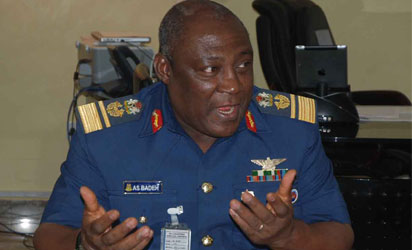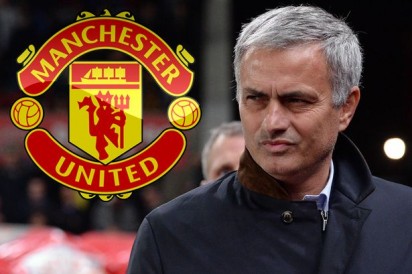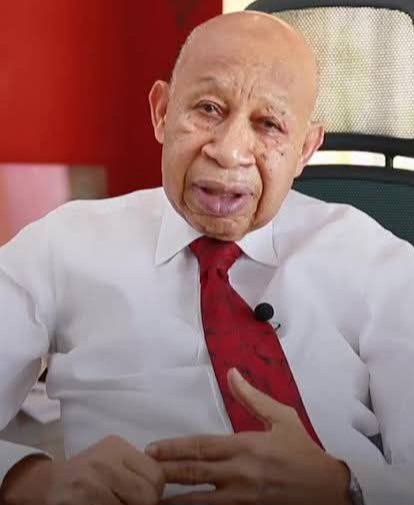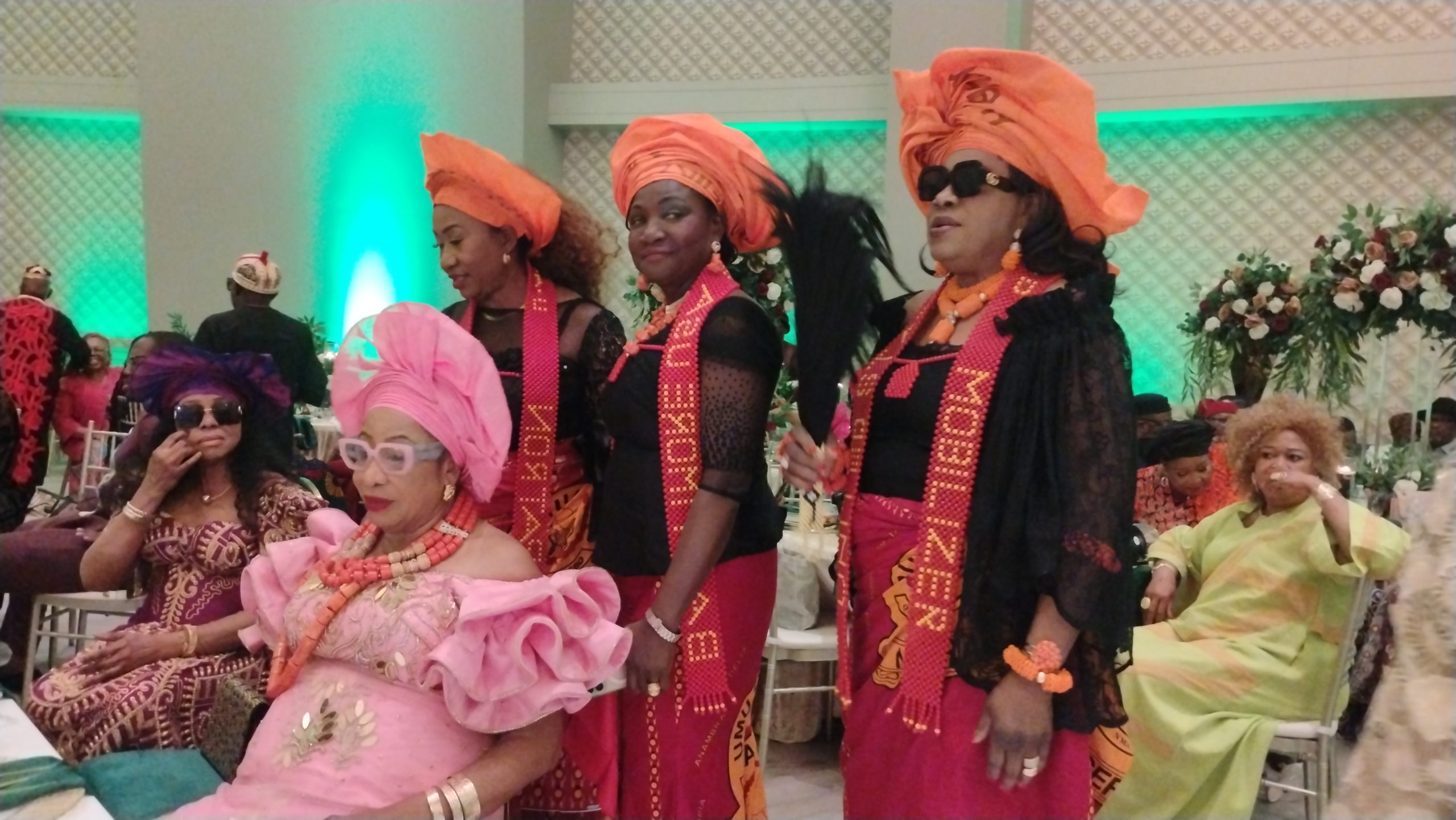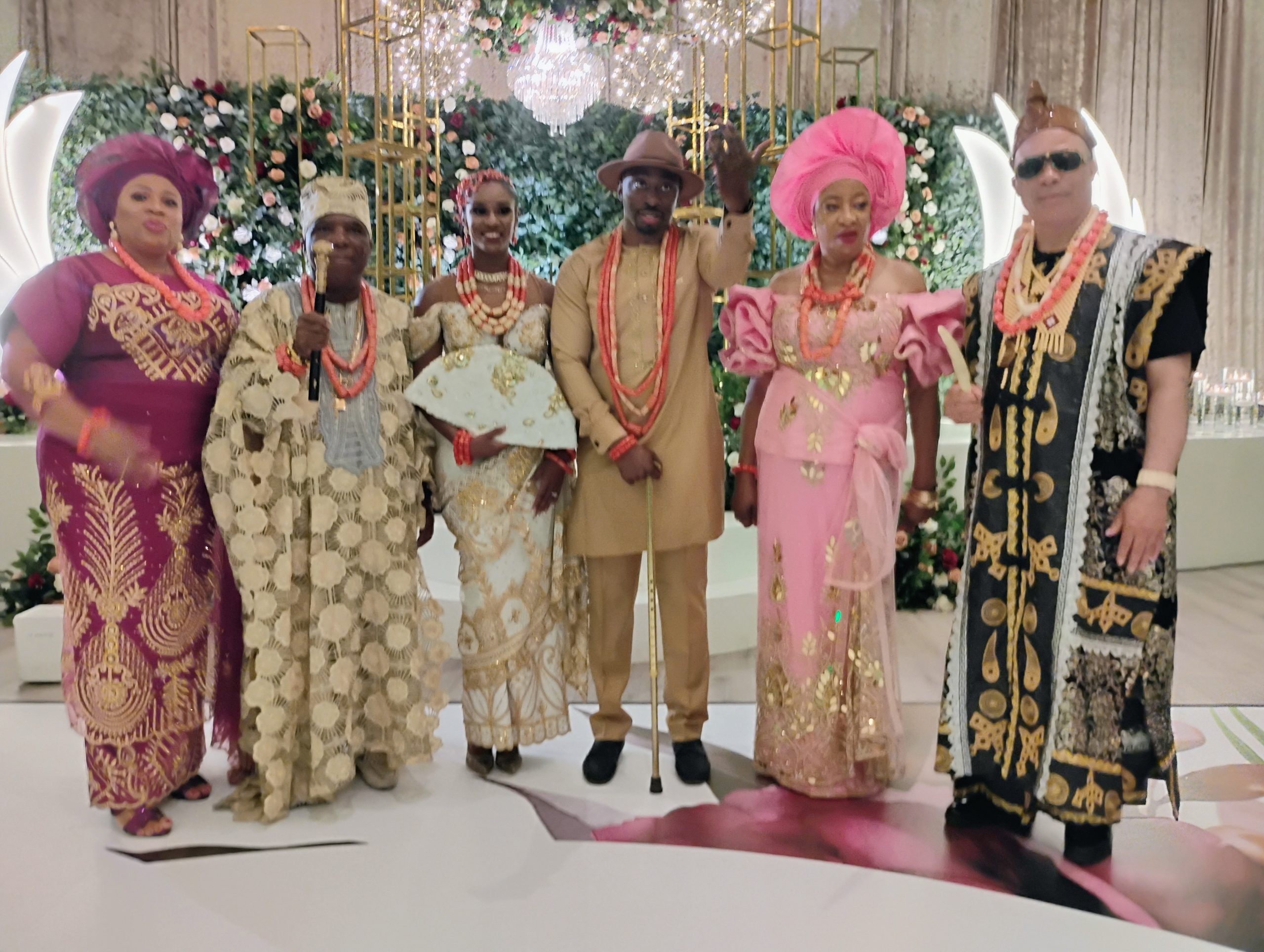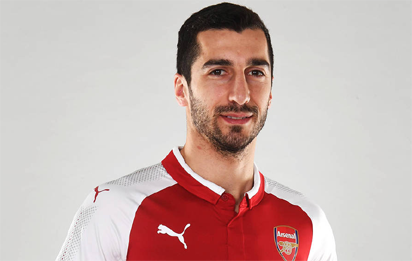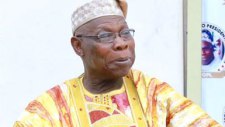Subsidy on, as Buhari presents N8.8trn budget
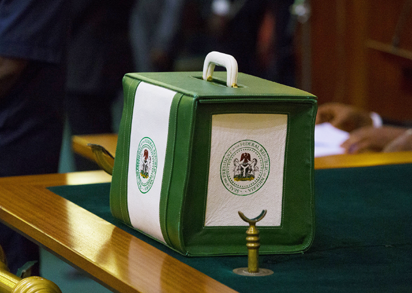
President Muhammudu Buhari, yesterday, presented the 2019 budget proposal of N8.83 trillion to the National Assembly. The 2019 budget estimate is N300 billion lower than the N9.1 billion being implemented for the current fiscal year.
A major highlight of the budget is the provision of N305 billion for under-recovery by the NNPC on petrol, or subsidy.
“We have allowed N305 billio, equivalent to one billion US dollars for under-recovery by the NNPC (Nigeria National Petroleum Corporation on Premium Motor Spirit in 2019,” the President said. According to the budget proposal, projected revenue stood at N6.97 trillion, representing about three per cent lower than the 2018 estimate of N7.17 trillion. The estimates left a fiscal deficit of about N1.86 trillion, as against the N1.950 trillion deficit contained in the current budget. The president who addressed a joint session of the National Assembly, proposed to spend N4.04 trillion which represented over N500 billion over the 2018 recurrent expenditure of N3.15 trillion. It was an indication of a departure from the administration’s pledge to increase the Capital vote against recurrent. Capital vote was down from N2.873 trillion in 2018 to N2.031 trillion in the proposed budget. Statutory transfers also fell from 530 billion to a new figure of N492.36 billion in the proposed budget. The sum of N2.14 trillion was provided for debt servicing in the 2019 budget, which was a slight increase when compared with the N2. 014 trillion in the previous budget. He said that 2019 budget which he tagged, “Budget of Continuity,” was based on a crude oil benchmark price oil price of $60per barrel, with an output of Oil production estimate of 2.3 million barrels per day. According to the President, the exchange rate of N305/US$ would be used in 2019, the same figure as in the 2018 budget, although real exchange rate has been hovering around N360/$1 for a long period in the foreign exchange market.
A Real Gross Domestic Product (GDP) growth of 3.01 percent was projected, with an inflation rate of 9.98percent. President Buhari gave a breakdown of the expected revenue consisting of oil revenue projected at N3.73 trillion, and non-oil revenue estimated at N1.39 trillion. “The estimate from non-oil revenue consists of N799.52 billion from company income tax; N229.34 billion from value added tax, and customs duties of N302.5 billion. We have reduced our expectations from independent revenue to N624.58 billion. “Other revenues expected in 2019 include various recoveries of N203.38 billion; N710 billion as proceeds from the restructuring of government equity in joint ventures, and other sundry incomes of N104.1 billion,” he said. The President explained that the total N8.83 trillion proposed expenditure for 2019 included grants and donor funds amounting to N209.92 billion. He added that although the 2019 estimate was lower than the 2018 budget of N9.1 trillion, it was higher than the N8.6 trillion contained in the Medium Term Economic framework. On the deficit, the president said that “Reduction is in line with our plan to progressively reduce deficit and borrowings over the medium term.” An analysis of the sectoral allocations, indicated that the Ministry of Interior got the highest figure of N569.07billion, followed by Education (N462.24 billion) Defence (N435.62 billion), and Health (N315.62 billion). According to the President, allocation to the Social Intervention Projects, SIP, was retained at N500 billion, consisting of N350 billion recurrent and N150 billion capital, reflecting government’s continued determination to pursue inclusive gender-sensitive and pro-poor growth. President Buhari said that as part of moves by the government to sustain the peace in the Niger Delta, the provision of N65 billion for the Presidential Amnesty Programme had been retained in the 2019 budget. The sum of N45 billion was provided for the North East Intervention Fund and another N10 billion as take-off grant for the North East Development Commission. Budget 2018 performance Earlier in his review of the 2018 budget, President Buhari said that it had achieved 67 per cent in terms of expenditure, with revenue recording 53 per cent, as at the end of the third quarter. His words, “As at the end of the third quarter, Federal Government’s actual aggregate revenue was N2.84 trillion, which is 40 percent higher than 2017 revenue. The overall revenue performance is only 53 per cent of the target in the 2018 budget largely because some one-off items are yet to be actualized. We have now rolled this revenue item over to 2019. “Of the total appropriation of N9.12 trillion, N4.59 trillion had been spent by September 30, 2018 against the prorated expenditure target of N6.84 trillion. This represents 67 per cent performance. Debt Service and the implementation of non-debt recurrent expenditure, notably payment of workers’ salaries and pensions are on track. “Despite the delay in the passage of the 2018 Budget on June 20, 2018, the sum of N820.57 billion had been released for capital projects as at December 14, 2018. We have carried over capital projects that were not likely to be fully funded by year-end 2018 to the 2019 budget.” New minimum Wage On minimum wage, President Buhari promised to send an Executive Bill to the National Assembly to address the lingering problem of minimum wage, adding “Let me say something about the minimum wage issue. I am committed to addressing the issue of a new minimum wage and I will be sending a bill to the National Assembly on this. However, in order to avoid a fiscal crisis for the Federal Government, as well as the states, it is important to devise ways to ensure that its implementation does not lead to an increase in the level of borrowing.
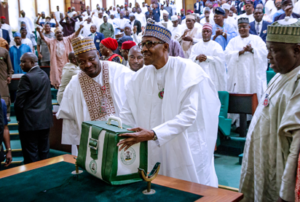 “I am accordingly setting up a high-powered technical committee to advise on ways of funding an increase in the minimum wage, and the attendant wage adjustments, without having to resort to additional borrowings. “The work of this technical committee will be the basis of a Finance Bill which will be submitted to the National Assembly, alongside the Minimum Wage Bill. In addition, the Technical Committee will recommend modalities for the implementation of the new minimum wage in such a manner as to minimize its inflationary impact, as well as ensure that its introduction does not lead to job losses.” Atmospherics at the budget presentation Meanwhile, prior to the Presentation of the budget to the lawmakers by the President yesterday, security within the National Assembly was unusually water tight. Security operatives from the Presidential Villa took over the entire place as early as dawn. Apparently, as a result of the striking parliamentary staff, the management of the institution took the option of using the presidential gate of the National Assembly bordering the Supreme Court and the Villa. The main gate of the complex opposite the federal secretariat as well as the entrance from the office of the Secretary to the Government of the Federation, SGF were all shut. Journalists and indeed, other people who had anything to do at the complex were subjected to what could be described as rigorous security checks. The checks continued around 10:30 a.m., when they started making entry into chamber for the budget presentation that was billed for 11a.m. At least, more than five persons including operatives from the Department of State Service, DSS, Police anti-bomb squad and the National Assembly security officials were stationed at the door to the gallery, armed with a list of all journalists. How the session was conducted With some lawmakers mostly members of the House were already seated in the chamber. At exactly 11:17a.m., the Speaker, Yakubu Dogara entered the chamber amid cheers and hand-shaking with colleagues as he walked on down the aisles. He conducted the parliamentary national prayer at 11:20a.m. Within the period, the Speaker read a motion to admit the President of the Senate into the Chamber. He looked around and noticed that there was no motion to usher in President Buhari. He asked: “What of the motion to allow the President and his entourage?” Looking out, he asked the Deputy Speaker, Yusuf Lasun and the Leader of the House, Femi Gbajabiamila to come to the podium. “DS and the leader, can you, please, approach the chair, he said. Time was 11:27 a.m. At this point, the seat of the Senate President was brought. Similarly, a DSS operative ushered in that of President Buhari just as another operative brought in the President’s lectern. Dogara after a chat with his colleagues, pleaded for all guests, including journalists at the gallery to excuse the chambers for five minutes, leaving only the lawmakers behind. Time was 11:32 a.m. While the executive session was ongoing, the members of the Federal Executive Council, FEC which included the ministers walked into the lobby. Time was 11:40 a.m. At 11:49a.m., Ita Enang, the Senior Assistant to the President on Legislative Matters walked into the lobby with the Minister of Budget and National Planning, Udo Udoma, elatedly carrying the budget proposal adorned in national colours and coat of arm. Later at 11:50a.m., Vice President Yemi Osinbajo entered the lobby with his entourage while the lawmakers’ meeting was still ongoing. He was taken to the Speaker’s second office at the White House. The gallery door opened for journalists at 12: 25p.m. At 12:28 p.m., the lawmakers began to chant songs “Kingdom come by struggle, kingdom come.” They were mostly lawmakers from the Peoples Democratic Party, PDP, and the House divided along partisan lines. At 12:29p.m., the Senators walked into the chambers to join House members. The Senate President, Bukola Saraki walked into the Chamber at 12:30 p.m., amidst cheers and handshake with members of the House of Representatives.
“I am accordingly setting up a high-powered technical committee to advise on ways of funding an increase in the minimum wage, and the attendant wage adjustments, without having to resort to additional borrowings. “The work of this technical committee will be the basis of a Finance Bill which will be submitted to the National Assembly, alongside the Minimum Wage Bill. In addition, the Technical Committee will recommend modalities for the implementation of the new minimum wage in such a manner as to minimize its inflationary impact, as well as ensure that its introduction does not lead to job losses.” Atmospherics at the budget presentation Meanwhile, prior to the Presentation of the budget to the lawmakers by the President yesterday, security within the National Assembly was unusually water tight. Security operatives from the Presidential Villa took over the entire place as early as dawn. Apparently, as a result of the striking parliamentary staff, the management of the institution took the option of using the presidential gate of the National Assembly bordering the Supreme Court and the Villa. The main gate of the complex opposite the federal secretariat as well as the entrance from the office of the Secretary to the Government of the Federation, SGF were all shut. Journalists and indeed, other people who had anything to do at the complex were subjected to what could be described as rigorous security checks. The checks continued around 10:30 a.m., when they started making entry into chamber for the budget presentation that was billed for 11a.m. At least, more than five persons including operatives from the Department of State Service, DSS, Police anti-bomb squad and the National Assembly security officials were stationed at the door to the gallery, armed with a list of all journalists. How the session was conducted With some lawmakers mostly members of the House were already seated in the chamber. At exactly 11:17a.m., the Speaker, Yakubu Dogara entered the chamber amid cheers and hand-shaking with colleagues as he walked on down the aisles. He conducted the parliamentary national prayer at 11:20a.m. Within the period, the Speaker read a motion to admit the President of the Senate into the Chamber. He looked around and noticed that there was no motion to usher in President Buhari. He asked: “What of the motion to allow the President and his entourage?” Looking out, he asked the Deputy Speaker, Yusuf Lasun and the Leader of the House, Femi Gbajabiamila to come to the podium. “DS and the leader, can you, please, approach the chair, he said. Time was 11:27 a.m. At this point, the seat of the Senate President was brought. Similarly, a DSS operative ushered in that of President Buhari just as another operative brought in the President’s lectern. Dogara after a chat with his colleagues, pleaded for all guests, including journalists at the gallery to excuse the chambers for five minutes, leaving only the lawmakers behind. Time was 11:32 a.m. While the executive session was ongoing, the members of the Federal Executive Council, FEC which included the ministers walked into the lobby. Time was 11:40 a.m. At 11:49a.m., Ita Enang, the Senior Assistant to the President on Legislative Matters walked into the lobby with the Minister of Budget and National Planning, Udo Udoma, elatedly carrying the budget proposal adorned in national colours and coat of arm. Later at 11:50a.m., Vice President Yemi Osinbajo entered the lobby with his entourage while the lawmakers’ meeting was still ongoing. He was taken to the Speaker’s second office at the White House. The gallery door opened for journalists at 12: 25p.m. At 12:28 p.m., the lawmakers began to chant songs “Kingdom come by struggle, kingdom come.” They were mostly lawmakers from the Peoples Democratic Party, PDP, and the House divided along partisan lines. At 12:29p.m., the Senators walked into the chambers to join House members. The Senate President, Bukola Saraki walked into the Chamber at 12:30 p.m., amidst cheers and handshake with members of the House of Representatives.
Afterwards, lawmakers resumed the chants. Time was 12:32p.m. Later, some placards were smuggled into the chamber. Just immediately, some struggling became rife amongst the lawmakers who tried to get a hold of one, just as others were seen resisting them. Linus Okorie from Imo State and Bashir Babale from Kano State were seen dragging the placards thrown to the lawmakers by Chika Adamu from Niger State. By 11:36p.m., Osinbajo walked into the chamber, amidst the skirmishes even as the solidarity song continued at the background. Calm eventually returned at 12:40 p.m., when both the Senate President and the Speaker prevailed on the lawmakers, by hitting the gavel and appealing for their attention. About the same time, another altercation erupted between Senators Sam Anyanwu, Solomon Adeola and Godswill Akpabio. It was not clear what the issue and reasons were. Immediately, the House members resumed their songs. At 12:42p.m., the hall yet again erupted with the coming of the president. It was simply a cacophony of some rowdiness. The Army band at the gallery played some preliminary tunes. Many lawmakers began to clap while the solidarity chants continued. At 12:43, chants of “Sai Baba,” referring to President Buhari took over the peace of the hall. At 12:44p.m., the National Anthem came from the Army band. All was calm again except for camera clicks. Done with the anthem, another round of jubilation and boos came loud from within. But the band played on. The song continued with almost an equal reaction from the All Progressives Congress, APC, lawmakers who shouted indiscernible tunes, too. Saraki resumed his begging and hitting of the gavel, begging the lawmakers to calm down. Then came the prayers. Christian version first, and then, the Islam. Time was 12:50p.m. About the same time, Saraki as the chairman of the National Assembly began to make his formal speech; a very short one it was. He then invited the President to make his presentation. Cheers, jeers Time was 12: 52p.m., when the President began to speech. Intermittently into the speech, there were jeers and cheers on both partisan paths. For instance, there was a thunderous “no, no” when the President said that the economy has recovered from recession. Same, when he said insurgency had been defeated and he was fighting corruption head-on. There were also boos and cheers when the President said in his speech that Nigeria was free of rice imports. The situation became even more rowdy when the president, midway in to his speech excused himself to drink water. APC lawmakers, fathers and mothers clapped in admiration. Time was now 1:31p.m. President Buhari ended his speech at 1:55p.m. Then, there was standing ovation mostly from APC lawmakers, and then, a sound from the Army band oozed out just as Buhari hailers supported in clinched fist. “Sai Baba” chants came even louder on the microphone. It was not clear whose voice that was. But APC House leader, Gbajabiamila was seen shouting “said baba” in an extraordinary jubilant mood and with gusto too. Just then, the tone changed. “Four more years,” took the air. There was another stifled struggle with some placards. Vanguard couldn’t read the inscriptions on it as the lawmakers holding them couldn’t muster the courage to lift them up very well. Just then, the PDP stock resumed their chants “Kingdom come by struggle” just as their APC counterparts resumed their “four more years” chants, indicating so with their fingers of 4 plus 4. A totally surprised Dogara was seen hitting the gavel, pleading for attention of the lawmakers but his pleas fell on deaf ears. He had been asked to give his speech and possibly a vote of thanks, but the APC lawmakers wouldn’t want any of those. Perhaps, they were apprehensive that the Speaker may bash the president’s presentation since Saraki was very careful with words and clearly did not make any comment on issues earlier. The chamber got real rowdy with boos and cheers. Just immediately, the Army band repeated the national anthem to mark the closing of the ceremony. Time was 2:04p.m. Of course, in the spirit of nationalism and obedience to the laws, the lawmakers especially the APC members, sang alongside the band in high ecstasy. With the anthem over, President Buhari turned round to the podium and shook hands with Saraki, Dogara, and exited the chamber at 2:05p.m., with army band playing some scintillating tunes at the background. Saraki and Dogara patiently stood for the President until he finally left the chamber. The Senate President then left the podium into the waiting arms of his colleagues who sang “happy birthday,” to mark his 56th birthday anniversary yesterday. Lawmakers react Speaking with Vanguard, the National Chairman of the APC, Adams Oshiomhole, who described action of the lawmakers who lampooned the President during the presentation, said that it was their privilege, adding that the President had delivered in all areas and sectors. Also speaking, both the Senate Leader, the Chief Whip and the Deputy Chief Whip, Senators Ahmad Lawan, Olusola Adeyeye and Francis Alimikhena separately condemned the action of the lawmakers, describing it as a national embarrassment. Speaking with Vanguard on the proposed budget, Senator Ben Murray- Bruce, who condemned the budget, was however, pessimistic that it will not grow the economy against the backdrop that the capital is less and that aspect of budget is what counts. On her part, Senate Minority leader, Senator Biodun Olujimi (PDP, Ekiti South) who spoke with Vanguard picked holes in the budget, saying that it was not capable of restoring hope in Nigeria, just as she said that they would wait while scrutinizing the document. Also reacting to the development, the Presidency described the action of the lawmakers as theatrics of democracy and no commotion. Speaking on the development, the Senior Special Assistant to the President on National Assembly Matters, Senate, Senator Ita Enang, said that it was mere theatrics of democracy, which makes it beautiful and that nothing happened because the president has performed. In a reaction to the budget, Senator Solomon Adeola (APC, Lagos West), who noted that the budget was truly the budget for the Next Level of economic development for the first time in Nigerian history, said, “This budget is not only unique but have some first time in history provisions. This is the first time that a huge budget provision of N2.14 trillion is made for Debt Servicing. Not only that, 80% of that fund is for domestic debt servicing and the implication of that is that there is going to be more investment and creation of employment locally.”
